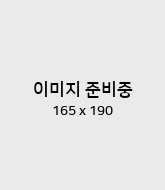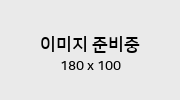Journals

International Journal of Body, Nature, and Culture
- eISSN
- 2950-9831
- doi prefix
- https://doi.org/10.23124
- Issues per year
- 2
- Indexing
- Not applicable
- Country, Region
- Seoul, Republic of Korea
Aims & Scope
- Aims
International Journal of Body, Nature, and Culture (JBNC) is a peer-reviewed, international, and transdisciplinary journal exploring recent developments in body studies. JBNC is committed to the conception of the body not as an entity with a fixed boundary but as a materializing process intertwined with other bodies human and non-human. With this ethical commitment coupled with theoretical openness, JBNC invites academic articles from a broad range of scholars in the fields of body studies. In addition, JBNC also welcomes notes, discussions, and reviews that stimulate new perspectives on body-related studies and encourage interdisciplinary exchange. Articles in this journal are subject to double-blind peer review. JBNC is published two times yearly by the Institute of Body & Culture (IBC) in Korea, which, since its foundation in 2007, has led and shaped body studies in the fields of philosophy, sociology, science, anthropology, cultural studies, environmental studies, feminism, and many others.
For further information, visit us online: http://ibc.konkuk.ac.kr/main.do
Archives
Current
-
Navigating Precarity: From Refugee Camps to Colonies
- Arunjot Kaur and Meenu Gupta
- DOI : https://doi.org/10.23124/JBNC.2023.2.2.115
-
Reading and Reflecting Upon Precarious Lives of Capitalism through Korean Drama My Mister
- Tanya Kaur and Meenu Gupta
- DOI : https://doi.org/10.23124/JBNC.2023.2.2.131
-
A Simulation Theory of Musical Expressivity: An Expanded Version
- Hye-yoon Chung
- DOI : https://doi.org/10.23124/JBNC.2023.2.2.151
-
Editor's Note: Precarious life and the Anthropocene, and Literature
- Jonggab Kim
- DOI : https://doi.org/10.23124/JBNC.2023.2.2.105
-
Editor's note: Anthropocene Humanities and the Institute of Body & Culture
- Kim, Jonggab
- DOI : https://doi.org/10.23124/JBNC.2024.3.1.3
-
Undecided Dimension of Depth: On the Question of the Place in the Thought of Kitaro Nishida
- Shinohara, Masatake
- DOI : https://doi.org/10.23124/JBNC.2024.3.1.13
-
Nonhuman Agencies in Elizabeth Bishop’s Poems as Subjects in the Era of Climate Change
- Park, Shinhyun
- DOI : https://doi.org/10.23124/JBNC.2024.3.1.31
-
From Vision to Version: Native Speaker as a Rewriting of East Goes West
- Choi, Hayoung
- DOI : https://doi.org/10.23124/JBNC.2024.3.1.53
Indexing
Not applicable
Editors
-

- Prof. Jonggab Kim Editor-in-Chief
- International Journal of Body, Nature, and Culture
Director of Institute of Body & Culture; Professor for English Dept. at Konkuk University, South Korea
-

- Dr. Shunqing Cao
- Distinguished Professor at Sichuan University, China
-

- Dr. Jeffrey K.H. Chan
- Assistant Professor, Humanities, Arts and Social Sciences/Design and Artificial Intelligence, Singapore University of Technology and Design, Singapore.
-

- Dr. Simon C. Estok
- Full professor and Senior Research Fellow at Sungkyunkwan University (South Korea’s first and oldest university
-

- Dr. Tom Cohen
- Professor at the Department of English at the University at Albany, SUNY
-

- Dr. Masatake Shinohara
- Associate professor at Kyoto University, with a primary focus on contemporary philosophy, environmental humanities, architecture, and art.
-

- Dr. Alex Taek-Gwang Lee
- Professor at the School of Global Communication Director and Global Centre for Technology in Humanities, Kyung Hee University.
-

- Dr. David R. Cole
- Associate Professor in Literacies, English and ESL in the Centre for Educational Research, University of Western Sydney.
-

- Dr. Irving Goh
- Associate professor of Literature, University of Singapore.
-

- Dr. Meenu Gupta
- Associate professor at the Department of English and Cultural Studies Panjab University, Chandigarh.
-

- Dr. Hsien-hao Sebastian Liao
- Distinguished Professor of English and Comparative Literature and Dean of the Institute for
Advanced Studies in the Humanities and Social Sciences, National Taiwan University.
Notice
Contact Information
- International Journal of Body, Nature, and Culture
-
Mailing address: Room 411, Institute of Body & Culture, Heavy Experimental Bldg., 120 Neungdong-ro, Gwangjin-gu, Konkuk University, Seoul, 05029, Republic of Korea
Tel: 02-701-3577
Fax : 031-851-0752
Email Address : kkbody@konkuk.ac.kr
If no response to your email is received within 72 hours please email us at :
kkbody@konkuk.ac.kr





